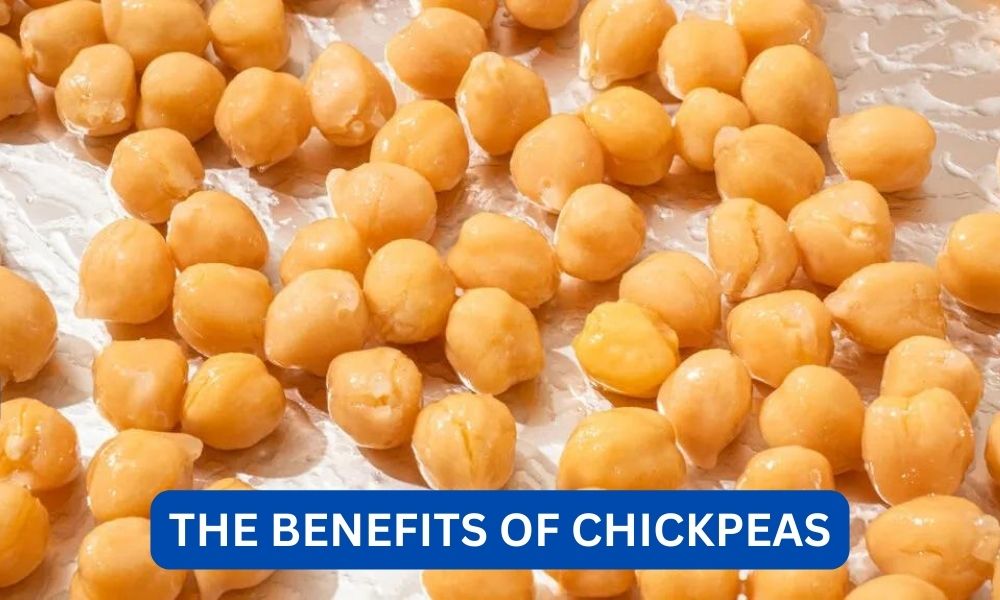Chickpeas, also known as garbanzo beans, are a type of legume that have been cultivated for thousands of years and are a staple in many cuisines around the world. They are a versatile and nutritious ingredient that can be used in a variety of dishes, from salads and soups to dips and curries. In recent years, chickpeas have gained popularity as a plant-based protein source and have been hailed as a superfood due to their numerous health benefits. In this article, we will explore the nutritional value and health benefits of chickpeas and why they should be a part of your regular diet.
Contents
The Nutritional Profile of Chickpeas
Chickpeas are packed with essential nutrients that are vital for maintaining good health. They are an excellent source of plant-based protein, complex carbohydrates, fiber, and a variety of vitamins and minerals. A 100-gram serving of cooked chickpeas contains:
- 19 grams of protein
- 61 grams of carbohydrates
- 17 grams of fiber
- 8 grams of fat
- 14% of the recommended daily intake (RDI) of iron
- 26% of the RDI of magnesium
- 28% of the RDI of phosphorus
- 29% of the RDI of copper
- 84% of the RDI of manganese
- 26% of the RDI of folate
- 13% of the RDI of vitamin B6
- 14% of the RDI of thiamine
- 12% of the RDI of riboflavin
Chickpeas are also a good source of other essential nutrients such as potassium, zinc, and vitamin C. They are low in calories and have a low glycemic index, making them a suitable food for people with diabetes or those trying to manage their weight.
Read:What are the benefits of vitamin bHealth Benefits of Chickpeas
The impressive nutritional profile of chickpeas translates into numerous health benefits. Let’s take a closer look at some of the ways in which incorporating chickpeas into your diet can improve your overall health.
1. Rich in Plant-Based Protein
Chickpeas are an excellent source of plant-based protein, making them a valuable addition to vegetarian and vegan diets. Protein is essential for building and repairing tissues, maintaining muscle mass, and producing enzymes and hormones. A 100-gram serving of cooked chickpeas provides almost 20 grams of protein, which is comparable to the protein content of meat and dairy products. Additionally, chickpeas contain all nine essential amino acids, making them a complete protein source.
2. Promotes Heart Health
Chickpeas are rich in fiber, which has been linked to a reduced risk of heart disease. Fiber helps to lower cholesterol levels by binding to bile acids in the digestive system and preventing them from being reabsorbed into the body. This, in turn, forces the liver to use cholesterol to produce more bile acids, leading to a decrease in the levels of LDL (bad) cholesterol in the blood. A study published in the American Journal of Clinical Nutrition found that consuming chickpeas regularly can lower LDL cholesterol levels by up to 5%.
Read:What are the benefits of riding a bike?Chickpeas are also a good source of potassium, which helps to regulate blood pressure and maintain a healthy heart. A 2016 study published in the Journal of the American College of Cardiology found that a diet rich in potassium can lower the risk of stroke by 24%.
3. Aids in Digestion
The high fiber content of chickpeas not only promotes heart health but also aids in digestion. Fiber adds bulk to stool, making it easier to pass through the digestive system and preventing constipation. It also feeds the beneficial bacteria in the gut, promoting a healthy balance of gut flora. A healthy gut microbiome has been linked to improved digestion, a stronger immune system, and a reduced risk of chronic diseases.
4. Helps with Weight Management
Chickpeas are a low-calorie and low-fat food, making them an excellent choice for people trying to manage their weight. The high fiber and protein content of chickpeas also contribute to their weight management benefits. Fiber helps to keep you feeling full for longer, reducing the chances of overeating, while protein helps to increase satiety and reduce cravings for unhealthy snacks. A study published in the Journal of Nutrition found that people who consumed chickpeas regularly had a lower body mass index (BMI) and waist circumference compared to those who did not.
Read:What are the benefits of donating blood?5. May Lower the Risk of Chronic Diseases
Chickpeas are rich in antioxidants, which are compounds that help to protect the body against damage from free radicals. Free radicals are unstable molecules that can cause oxidative stress, leading to chronic inflammation and an increased risk of diseases such as cancer, diabetes, and heart disease. The antioxidants in chickpeas, such as flavonoids and polyphenols, help to neutralize free radicals and reduce the risk of chronic diseases.
How to Incorporate Chickpeas into Your Diet
Chickpeas are a versatile ingredient that can be used in a variety of dishes. Here are some ideas on how to incorporate them into your diet:
- Add them to salads for a protein and fiber boost.
- Make hummus by blending chickpeas with tahini, lemon juice, and garlic.
- Use chickpea flour to make pancakes, crepes, or flatbreads.
- Roast chickpeas with spices for a crunchy and healthy snack.
- Make a chickpea curry or stew for a hearty and nutritious meal.
Conclusion:
Chickpeas are a nutritional powerhouse that offers numerous health benefits. They are an excellent source of plant-based protein, fiber, and a variety of essential vitamins and minerals. Regularly consuming chickpeas can promote heart health, aid in digestion, help with weight management, and lower the risk of chronic diseases. With their versatility and delicious taste, there are endless ways to incorporate chickpeas into your diet. So, next time you’re planning your meals, make sure to include this superfood for a healthy and balanced diet.









